
Sam Hoadley, manager of horticultural research at Mt. Cuba Center in Delaware, leads a team of researchers who conduct plant trials on native plant species and their cultivars and hybrids. Each 3- to 5-year trial evaluates the performance and ornamental value of a plant and measures its attractiveness to pollinators. Based on these tests, he has shared some of the best plants you can grow to help birds, bees, butterflies and other pollinating insects.
START WITH THE SPECIES
It's true that native plants often attract lots of pollinators. But two cultivars, 'Jeana' garden phlox and 'Jacob Cline' bee balm, were head and shoulders above the other plants in their respective trials. Sam explains that these are wild selections, which means they were found to have occurred naturally without typical human intervention, so the blooms are very similar to the species.
Even if we can't immediately tell the difference between different species and varieties, the insects often can. For example, Mt. Cuba's coreopsis study had 25 different species and cultivars in a field full of mostly yellow flowers, and different bee species had definite favorites.
Bumble bees were often found visiting 'Flower Tower' or 'Redshift'; dark sweat bees preferred C. delphiniifolia or Moonbeam', and honey bees really liked 'Golden Gain' and 'Route 66.
This story is from the Issue 173 - October 2023 edition of Garden Gate.
Start your 7-day Magzter GOLD free trial to access thousands of curated premium stories, and 9,000+ magazines and newspapers.
Already a subscriber ? Sign In
This story is from the Issue 173 - October 2023 edition of Garden Gate.
Start your 7-day Magzter GOLD free trial to access thousands of curated premium stories, and 9,000+ magazines and newspapers.
Already a subscriber? Sign In
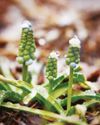
Backyard Tornado
\"HE WHO SEARCHES FOR SPRING WITH HIS KNEES IN THE MUD FINDS IT, IN ABUNDANCE.\" - ALDO LEOPOLD
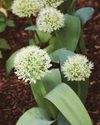
Front-of-the-Border "Wow!" Power
When it comes to easy-care plants that bring a lot of punch to the border, 'Ivory Queen' Turkestan onion should be near the top of your shopping list.
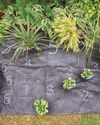
GARDEN ESSENTIALS
MAKE GARDENING EASIER THIS YEAR
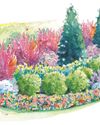
Elevate an Evergreen Hedge
Although an evergreen hedge looks suitable all year on its own, it's perfectly poised to become something even greater: a backdrop to a garden where flower after flower will unfurl with such drama, you just might find yourself stepping outside and offering your applause.

One Garden, Two Worlds
In this colorful and welcoming garden, sunny, flower-filled front borders transition to a shady backyard hideaway.
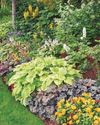
on edge
Four garden pros share their go-to edging techniques.
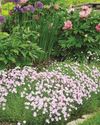
DIANTHUS
Add fragrance, vivid color and timeless charm with this reliable, cold-hardy perennial.
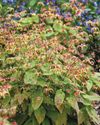
2025's Best New Plants!
Are you ready to start planning for next year's garden? A few new plants might be just what you need to bring those dreams to reality.
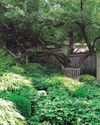
Solve Garden Problems With Ground Covers
Are you tired of coaxing turfgrass to grow in difficult spots? In her book Groundcover Revolution, Kathy Jentz says that ground covers can be the solution to these struggles.
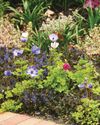
The Romance of Spring
With the arrival of spring, emerging perennials fill the garden with soft texture, restoring life to the harsh, often barren landscape of winter.